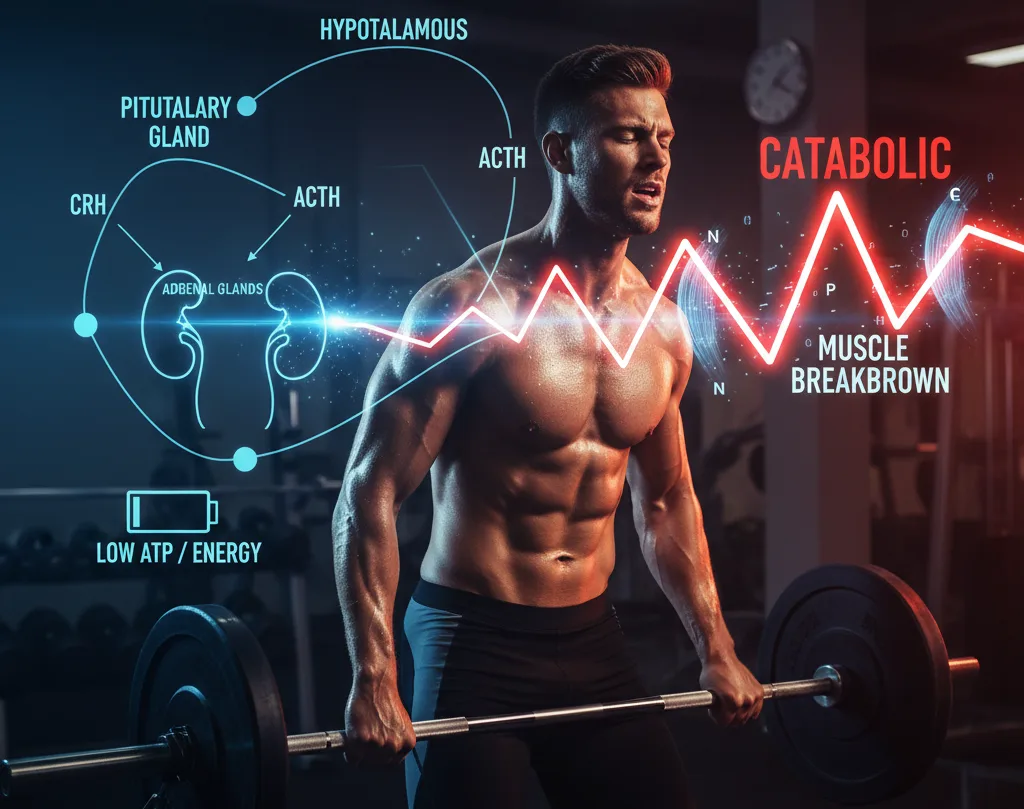Adrenocorticotropic hormone (ACTH) is a tropic hormone secreted by the anterior pituitary gland. As its name suggests, ACTH primarily stimulates the adrenal cortex, leading to the production of key hormones such as cortisol and androgens.
How ACTH Works:
Secretion: The hypothalamus releases corticotropin-releasing hormone (CRH), which signals the pituitary gland to release ACTH.
Target: ACTH binds to receptors in the adrenal cortex.
Response: This triggers increased production of cortisol (the main stress hormone) and, to a lesser extent, androgens.
ACTH and Cortisol Balance
ACTH and cortisol work in a feedback loop. When cortisol rises, ACTH secretion normally decreases. However, in cases of hormonal imbalance, both cortisol and ACTH may remain elevated.
High ACTH → High Cortisol
Effects:
-Alters nitrogen balance, potentially leading to muscle breakdown.
-Influences potassium and phosphate metabolism.
-Excess cortisol may contribute to phosphate imbalance, reducing cellular energy production.
In medical treatment, Sevelamer (brand name “Renagel,” sometimes noted as redupho), a phosphate binder, is used to lower phosphate levels by binding it in the gut and preventing absorption. While this is therapeutic in kidney patients, a similar reduction of phosphate availability in athletes could impair ATP production, the body’s primary energy currency.
Why ACTH and Cortisol Matter for Athletes
For athletes, especially those engaged in intense training, bodybuilding, or competitive sports, ACTH and cortisol levels are critical:
Muscle Mass & Recovery
Cortisol is catabolic: prolonged elevation leads to muscle protein breakdown and loss of nitrogen balance.
Athletes with consistently high cortisol may struggle to build or maintain muscle.
Electrolyte & Energy Balance
Disruptions in potassium and phosphate can impair muscle contraction, nerve function, and ATP production.
If phosphate availability is reduced (whether by medication like Sevelamer or by cortisol-related imbalance), performance and recovery can suffer.
Stress & Performance
While short-term cortisol boosts performance by mobilizing energy, chronic elevation reduces endurance and recovery capacity.
Athletes under constant stress (training load, competition pressure, lack of recovery) may experience suppressed anabolic hormones like testosterone.
Practical Implications for Athletes
Monitor stress and recovery: Overtraining without adequate rest elevates ACTH and cortisol.
Nutrition: Ensure phosphate-rich foods (meats, fish, legumes) are consumed to support energy metabolism.
Sleep: Restful sleep regulates ACTH-cortisol rhythm, helping optimize recovery.
Medical check-ups: Persistent fatigue, muscle loss, or electrolyte disturbances may warrant checking ACTH and cortisol levels, as well as phosphate status.

